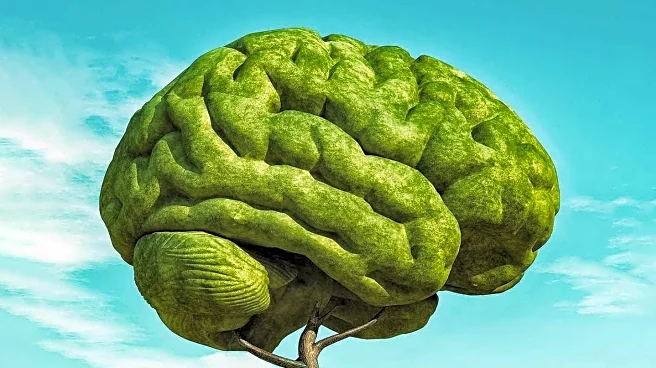What's Happening?
Researchers at the University of California, Berkeley have discovered specific brain mechanisms and feedback loops that regulate the release of growth hormone during sleep. This study, conducted through the analysis of brain circuitry in mice, reveals how growth hormone is released differently during REM and non-REM sleep phases. The findings suggest that sleep and growth hormone form a balanced system, where insufficient sleep reduces hormone release, and excessive hormone levels can lead to wakefulness. This research provides a foundational understanding of the neural circuits involved, potentially paving the way for new treatments for sleep-related conditions such as type 2 diabetes and Alzheimer's disease.
Why It's Important?
The study's implications are significant for public health, as growth hormone plays a crucial role in muscle and bone repair, as well as in managing glucose and fat processing. A lack of proper hormone balance due to insufficient sleep can increase the risk of obesity, diabetes, and cardiovascular disease. Understanding these mechanisms could lead to the development of hormonal therapies to improve sleep quality and restore normal growth hormone balance. This research highlights the interconnectedness of sleep and metabolic health, offering potential pathways for addressing widespread sleep disorders and their associated health risks.
What's Next?
Further research is needed to confirm these findings in humans, as the study was conducted on mice. If human brains operate similarly, new treatments for sleep disorders could be developed, potentially involving gene therapies targeting specific cell types. The study suggests that manipulating the excitability of the locus coeruleus could be a novel approach to improving sleep quality. As researchers continue to explore these neural circuits, there is hope for innovative therapies that could benefit those struggling with sleep-related health issues.
Beyond the Headlines
The study opens up discussions on the ethical considerations of gene therapies and their potential impact on human health. As scientists delve deeper into the neural circuits governing sleep and hormone release, questions about the long-term effects of manipulating these systems arise. Additionally, the cultural significance of sleep and its role in overall well-being may gain more attention, encouraging societal shifts towards prioritizing sleep health.










